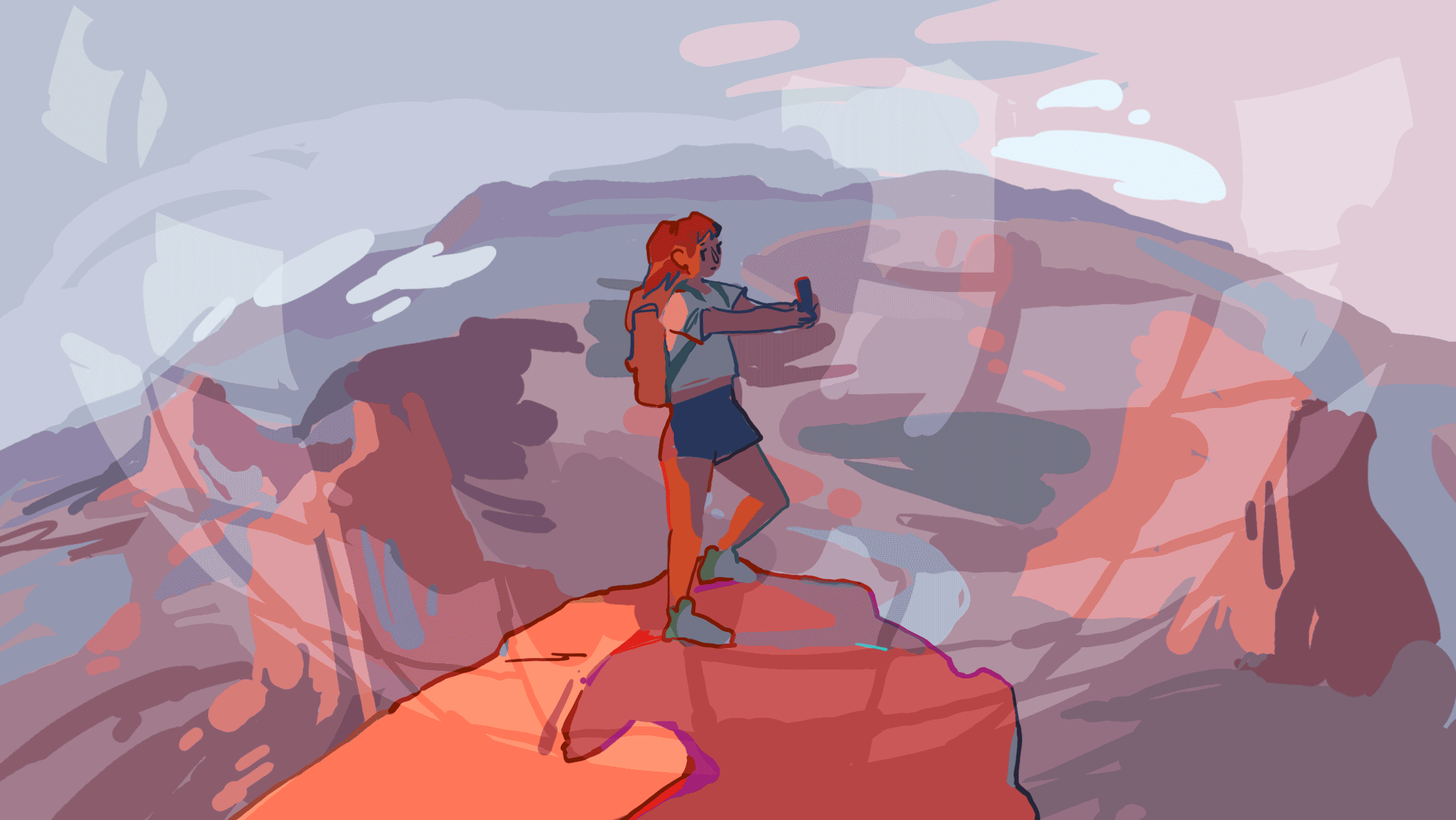
Photomersive
Project Description
An intuitive app that lets users easily snap and share 360° photos of their favorite memories.
Timeline
Spring 2022
Responsibilities
User Interviews, Wireframes, Prototyping, Interaction Design
Tools
Figma, Photoshop, After Effects
Problem:
It's hard to take 360° photos on the go. Current photography apps are not able to capture 360° photos, and other methods are complex and produce images that are not easily shareable with others.
Background
Take Only Photos...
...leave only footprints.
I'm a huge hiking + nature enthusiast, and I also take a ludicrous amount of photos of the places I've visited. However, there are views that panoramas and videos can't capture.


Background
What are 360° Images/Photospheres?
A spherical image created from multiple images taken in every possible viewing direction. Software stitches the photos into a continuous sphere - like a panorama with no edges.
Research
User Interviews
In total, we interviewed around thirty people to understand how they capture moments in their lives. From spontaneous photos (ie. Snapchat) to short-form videos, many interviewees expressed the desire for a more immersive visual medium.
"I would take photospheres - but I just can't send them to my friends."
"I want to take 360° pictures but I don't know where to start! It seems so difficult!"
"I wish there was a way to take more than just a panorama when I'm traveling."
Notes:
Through research, we noted common pain points with current photosphere apps/creation methods - users complained they were too technical, too slow to capture images, and not easily sharable over social media.
User Research
Personas
Our target audience is younger travelers and content creators - generally around 15 - 25 yrs old. They tend to be adventurous, social, and innovative.



Wireframes
First Sketches
Initial brainstorming of the main features - camera, gallery, AR viewing, and sharing options.
We came up with many possible uses for photospheres, ranging from documenting archeological digs to collaborative apartment touring.

Question:
Designing for this relatively new image format is a challenge - how can we teach users to capture at the right angles and rotate correctly to take quality 360° photos?
Wireframes
Second Iteration
At this point, we tried to understand our core users - would we design for casual users, or more "power users" with commercial uses (ie. realtors showing off interior spaces)?
We conducted many interviews to establish our direction - in the end, we focused on casual, social users, giving it more of a social media angle. I started mapping out the screens given its focus on snapping and sharing photos.

Process
Tutorial
Through talking to users, we realized that our app's most unique feature was its focus on guiding new photographers through taking their first photosphere - something that other apps don't spend time on.
Although photospheres aren't incredibly different from taking videos and panoramas, without guidance, users were intimidated by the new format and much less likely to take photos.

Final Prototype
Visual Value Proposition
We were tasked with creating a visual representation of our product - something that quickly communicated our core values and app functions. Iterating on this also let us hone in on our goals for our product.

Final Prototype
Finished! (for now)
Afterword
Takeaways
This was my first complete UX project (!!) and I'm grateful to have gone through this journey, from ideation to finished product.
I learned a lot in the process (ie. how late I'd stay up to get the perfect transition working) but also about incorporating feedback and staying flexible.
This project's amalgamation of AR viewing, camera, social media, and photo album capabilities was hard to reconcile at many points - but figuring out how those fit together was incredibly rewarding in the end!